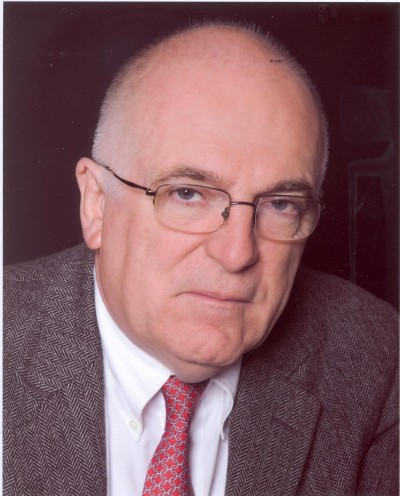Exaggeration in Action: Islamic Fundamentalism and the Threat to the West

When intelligence chiefs step out from behind the well worn desk and start to front more conspicuous authorities, some take notice. Away from the dramas of intrusive surveillance and careless monitoring techniques, the chiefs can engage in rarefied thinking and look at the broad stretch of history. We are away from the mechanists and the tool specialists. We can talk big things.
Britain’s former M16 chief, Sir Richard Dearlove (yes, the stuff of Ian Fleming’s Bond – closed combination rooms with port, cigars, afters and gossip), current Master of Pembroke College, Cambridge struggles to see what the fuss is about. If anything, he sees it as counterproductive, needless attention shed upon a misunderstood topic. Some Britons might be spreading “blood-curdling” jihadist messages like soft butter, but it would be ridiculous to entertain them. Hysteria can be so unbecoming.
His arguments, made before the Royal United Services Institute in London, is that, since the Arab Spring, the threat has shifted from being a maniacally driven project to undermine the West (whatever on earth that means), making societies such as those of Britain “marginally affected”. The attacks of September 11, 2001 in the US and July 7, 2005 in Britain were now distant matters in the strategic landscape. What we are instead entertained to are the rants and actions of “misguided young men, rather pathetic figures” who were obtaining exposure beyond “their wildest dreams.”
Accordingly, Dearlove sees the angry brigades of young men in ISIS as a matter of “essentially one Muslim on Muslim” (Guardian, Jul 7), suggesting that killing is not a problem as long as it takes place elsewhere, off the common green. Let the jihadists sort it out amongst themselves. It matters not a jot what we do.
The problem with Dearlove’s assessment here is that things done to the situation in Middle East did, and do, matter. His speech insisted that the US and British-led invasion of Iraq in 2003 had “probably small significance” regarding the creation of such groups as ISIS. That is where his analysis is weak, refusing to believe that, under his watch as chief, Pandora’s Box was opened by a combination of carelessness and good, old-fashioned stupidity.
Dearlove had some convincing to do about his image of armed but childish attention seekers. The neoconservatives are itching to get back into the fight. The Tories want a cause to strike at. The have individuals such as Abdul Raqib Amin of Aberdeen keen to express on Good Morning Britain how he
“left the UK to fight for the sake of Allah, to give everything I have for the sake of Allah. One of the happiest moments of my life was when the plane took off from Gatwick airport. I was so happy, as a Muslim you cannot live in the country of kuffars (non-believers).”
This counter-current is far from soft and tepid. Examinations of the problem in a domestic setting, specifically the threat of radicalisation or the efforts of Islamic communities in the “West” abound. The policy brief of December 2011 from the Quarterly Journal of the Belfer Center argues that, “Despite warnings by public officials and terrorism analysts, there is little evidence that the risk of terrorist attacks in the Untied States by American Muslims is especially serious or growing.”
It also points out that, in exaggerating the threat, “serious risks” are created, among them estranging local Muslim communities who have “demonstrated willingness to expose aspiring militants”. Information is thereby cut off, and good will lost.
Researchers at Duke University and the University of North Carolina at Chapel Hill reached similar conclusions in a study in 2010. Since the events of September 11, 2001, the study found that 139 American Muslims had committed violent terrorist acts (Time Magazine, Jan 6, 2010). The flipside of a negligible threat was that of a plausible one in the event of heavy-handed counter-terrorism measures. The exaggerated threat becomes an furious one. “Our research,” claimed David Schanzer, director of Duke University’s Triangle Centre on Terrorism and Homeland Security “suggests that initiatives that treat Muslim-Americans as part of the solution to the problem are far more likely to be successful.”
Dearlove’s beef, then, is with the media, who is seen to be leading the security establishment by the chain. They provide unnecessary “oxygen”. Certainly, the moguls and media outlets would be thrilled to have such control. Certainly, UK Prime Minister David Cameron has a different view, as do leaders in other countries concerned about a string of recruits keen to blood themselves in the Syrian and Iraq conflicts. “The number of foreign fighters in that area, the number of foreign fighters including those from the UK who could try to return to the UK is a real threat to our country.”
Dearlove’s summation, if rooted in an old-school appraisal of Western interventions in an area seen as a necessary playground, is more sound than most. Keep coverage of the Middle East “as a political requirement”, he suggests, “but without putting the incipient terrorist threat to ourselves at the centre of the picture and, in particular, without demonising our own Muslim community on account of the small number of their young men who were tragically sucked into the conflict and risk returning home in an ugly and dangerous frame of mind.” Wise words, but it remains to be seen whether they stick.
Dr. Binoy Kampmark was a Commonwealth Scholar at Selwyn College, Cambridge. He lectures at RMIT University, Melbourne. Email: [email protected]

